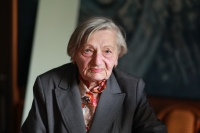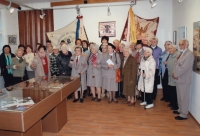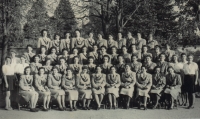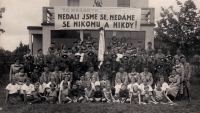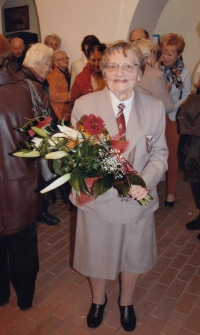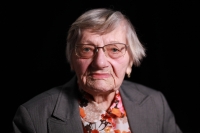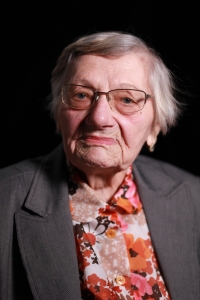It’s important that people do not suffer because of their opinions

Download image
Helena Zvánovcová was born on 8 August 1924 in Soběslav in Southern Moravia as a businessman’s daughter. Her father Rudolf Hřebík served in the Czechoslovak Legionnaires in Russia during the First World War and her grandfather from her mother’s side was František Ctibor, who in 1885 was a founding member of the Sokols of Soběslav, where Helena Zvánovcová trained from the time she was four years old. She lived to see the Sokol organization being both cancelled and then reinstated twice. During the war she was at risk of being drafted into duty, which she managed to avoid by getting married in 1943. She took part in the 11th All-Sokols Rally and parade in Prague in 1948 where she actively jotted down on her Gathering leaflet anti-communist slogans which were seen during the parade’s march through Prague. She continues to be an active member of the Soběslav club, in 1990 she began in the function of educator and longtime vice-chairperson of the Soběslav Sokols. She contributed to putting together the exhibition honoring the 130th anniversary of the founding of the Soběslav Sokol organization in 2015. Today (in 2020) she resides in her hometown of Soběslav in the Tábor District.
